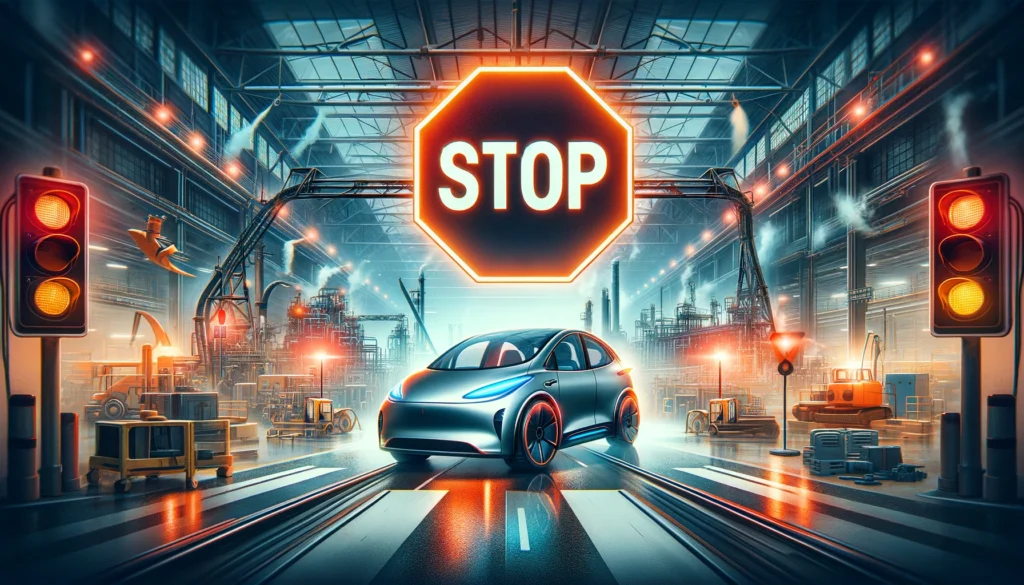In a surprising industry shakeup, Ford Motor Co. announced on Thursday a delay in the production of two new electric vehicles (EVs) and a renewed focus on hybrid vehicles, as demand for electric cars continues to wane. This monumental decision comes amid increasing losses for the automotive giant’s electric vehicle business and growing consumer dissatisfaction with electric vehicles. The consequences of this announcement will undoubtedly trigger a domino effect throughout the industry, significantly impacting both the booming EV market and the political landscape.
Ford revealed it will delay the launch of at least two new three-row electric vehicles from 2025 to 2027. In a statement, the company justified the decision, claiming that “the additional time will allow the consumer market for three-row EVs to further develop and enable Ford to take advantage of emerging battery technology.” While the production of electric vehicles stalls, Ford is expanding its hybrid electric vehicle offerings, with plans to offer hybrid powertrains across its entire Ford Blue lineup in North America by the end of the decade.
The New York Times reported a stark contrast in the company’s financials: Ford’s electric vehicle division lost $4.7 billion before interest and taxes in 2023, while its gasoline and hybrid vehicle division reaped a $7.5 billion profit. Sam Abuelsamid, principal analyst for transportation and mobility at research firm Guidehouse Insights, told the Times, “Many companies rushed in too fast with E.V.s that were too expensive and there was not as much of a market for them as they thought. That’s made it a lot tougher to sell those vehicles.” This report exposes a hidden truth lurking beneath the electric vehicle market’s glossy exterior, as numerous companies have been forced to either cancel plans to build electric cars, scrap plans to go all-electric, or struggle just to stay in business.
Consumers have voiced their concerns with electric vehicles, frequently citing high prices, questionable quality and reliability, insufficient charging stations, lengthy charging times, inconvenience, and diminished performance in cold weather conditions. The culmination of these grievances has led to a sharp decline in consumer demand for EVs and a subsequent shockwave through the industry.
This latest development even has political implications, with former President Donald Trump vowing to undo President Joe Biden’s electric vehicle mandate if re-elected. A Trump campaign spokesperson stated that “Joe Biden’s extreme electric vehicle mandate will force Americans to buy ultra-expensive cars they do not want and cannot afford while destroying the U.S. auto industry in the process. This radical policy is anti-jobs, anti-consumer, and anti-American. It will destroy the livelihoods of countless U.S. autoworkers while sending the U.S. auto industry to China.” If elected, Trump intends to reverse Biden’s mandate and focus on policies to protect Americans’ freedom to choose their vehicles, enhance tariffs on Chinese-imported cars, and save the U.S. auto industry for future generations.
Ford’s announcement and its reverberating effects unveil a stark reality – the electric vehicle market is not as invincible as once believed. With consumer demand plummeting and major auto manufacturers like Ford shifting their focus to hybrid vehicles, the future of the electric vehicle industry is at a crossroads. What once seemed like an unstoppable force driving the transportation revolution is now grappling with unexpected challenges, forcing companies and policymakers alike to reassess their strategies for a sustainable, consumer-driven future.



